“All Happy Families are alike; each unhappy family is unhappy in its own way.”
Leo Tolstoy
Leo Tolstoy’s profound opening line from Anna Karenina sets the stage for Haroula Rose’s compelling sophomore feature, “All Happy Families.” This family dramedy, a follow-up to her critically acclaimed “Once Upon a River” (2020), delves into the intricate and often turbulent dynamics within a seemingly ordinary Chicago family. For those in the Chicago area, there’s a special opportunity to experience this film: “All Happy Families” will be screened at the Music Box Theatre on October 7, 2024, with director Haroula Rose present for a post-screening Q&A. Tickets and further details are available here.
Rose, known for her ability to draw authentic and grounded performances from her cast, once again demonstrates this gift in “All Happy Families.” Having previously interviewed the cast of “Once Upon a River,” the depth of her connection with actors is evident in every frame. This time, she collaborates with Coburn Goss, who played Uncle Cal in “Once Upon a River,” not just in front of the camera but also behind it, as co-writer of the script.
The film centers on the Landry family in Chicago. Graham Landry, portrayed by Josh Radnor, finds his life disrupted by the unexpected arrival of his celebrity brother Will, played by Rob Huebel. The family dynamic further shifts with the arrival of their parents, Sue and Roy, brought to life by the stellar performances of Becky Ann Baker and John Ashton. Reunited in their family home, long-standing tensions and hidden complexities surface, leading to both familial collapse and the potential for renewal and hope.
“All Happy Families” resonates deeply because it fearlessly explores the ingrained issues that can simmer beneath the surface of any family. Much like the documentary “Bad Axe,” this film possesses a unique power to spark crucial conversations, albeit through a different narrative lens. Beyond the central cast, Chicago actress Chandra Russell (South Side) delivers a standout performance as Dana, Graham’s love interest. Her character’s journey of self-discovery and authenticity offers a compelling counterpoint to the Landry family’s struggles.
This film is clearly a passion project for Haroula Rose, brought to fruition by a dedicated and enthusiastic team. Before its hometown premiere at the 59th Chicago International Film Festival, Rose shared insights into the making of “All Happy Families.”
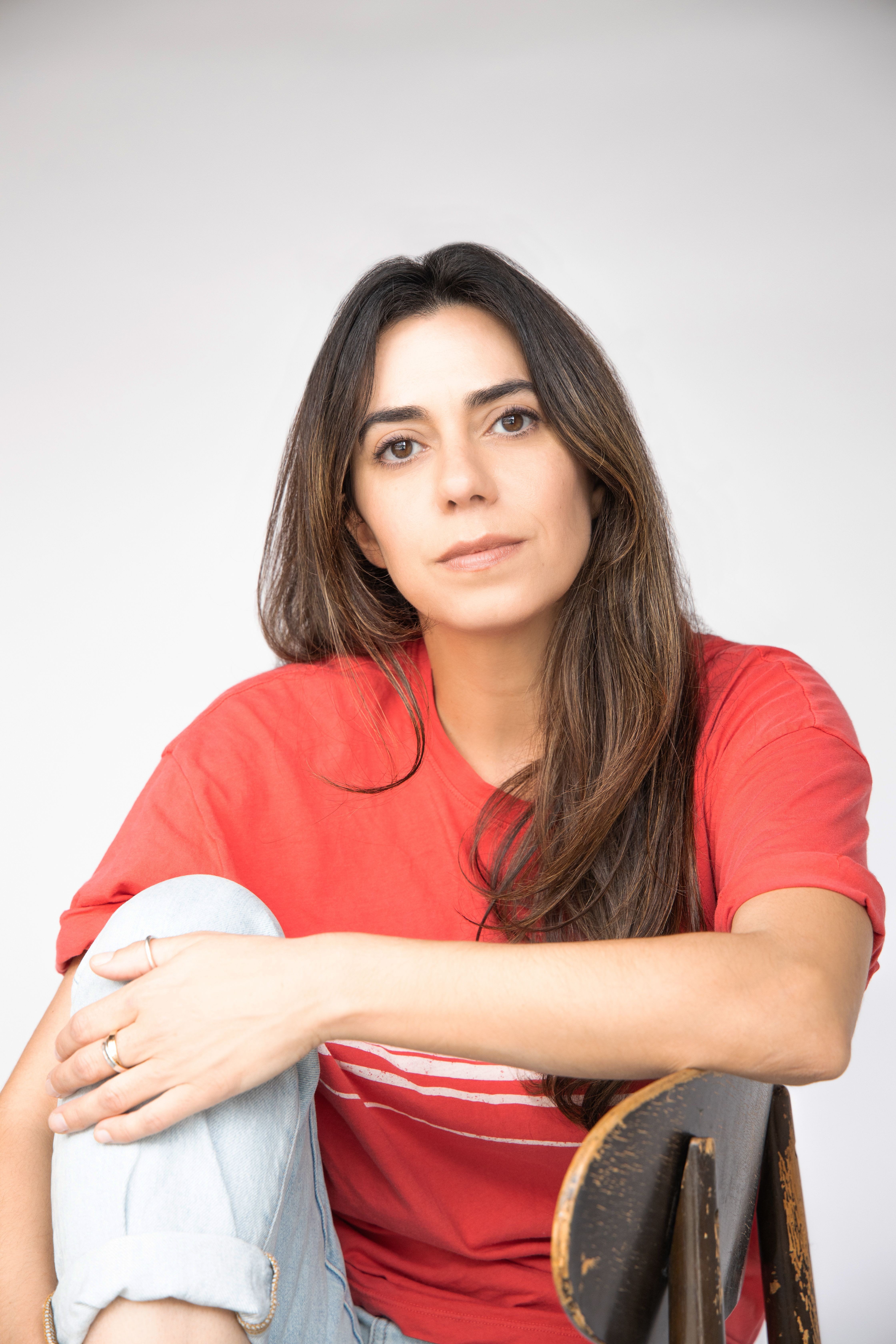 Director Haroula Rose
Director Haroula Rose
The Genesis of “All Happy Families”: Inspiration and Collaboration
Rose discussed the collaborative process with Coburn Goss, which began after their successful experience on “Once Upon A River.” She noted Goss’s nuanced portrayal of Uncle Cal, a morally ambiguous character, and his innate understanding of dialogue and character complexity. Discovering Goss’s background as an award-winning playwright, Rose saw an opportunity for a fruitful writing partnership.
The limitations imposed by the COVID-19 pandemic inadvertently spurred the creation of “All Happy Families.” Seeking a project that was both creatively fulfilling and financially feasible, Rose and Goss conceived a character-driven narrative that could be executed on a smaller budget. Rose expressed a desire to diverge from her previous work and showcase her versatility as a director, particularly in working with actors in a character-focused dramedy. The project was born from a blend of creative ambition and practical considerations in a post-COVID filmmaking landscape.
Assembling the Landry Family: Casting Choices and Chemistry
Casting Rob Huebel as Will Landry was a deliberate choice, driven by Rose’s long-standing admiration for his ability to portray characters who are both charming and questionable. She believed Huebel possessed the perfect balance to embody Will’s complex personality. Reaching out to Huebel’s agent, Rose was thrilled when he quickly connected with the script and the role. A Zoom conversation solidified their conviction that he was the ideal fit.
Josh Radnor’s casting as Graham Landry was rooted in a personal friendship that spanned over a decade. Their connection began when Rose’s music was featured on How I Met Your Mother, leading to a mutual friend introducing them. Rose had always sought an opportunity to collaborate with Radnor professionally, recognizing his versatility and the untapped potential to portray a character unlike his previous roles. “All Happy Families” offered Radnor a chance to explore a different facet of his acting abilities.
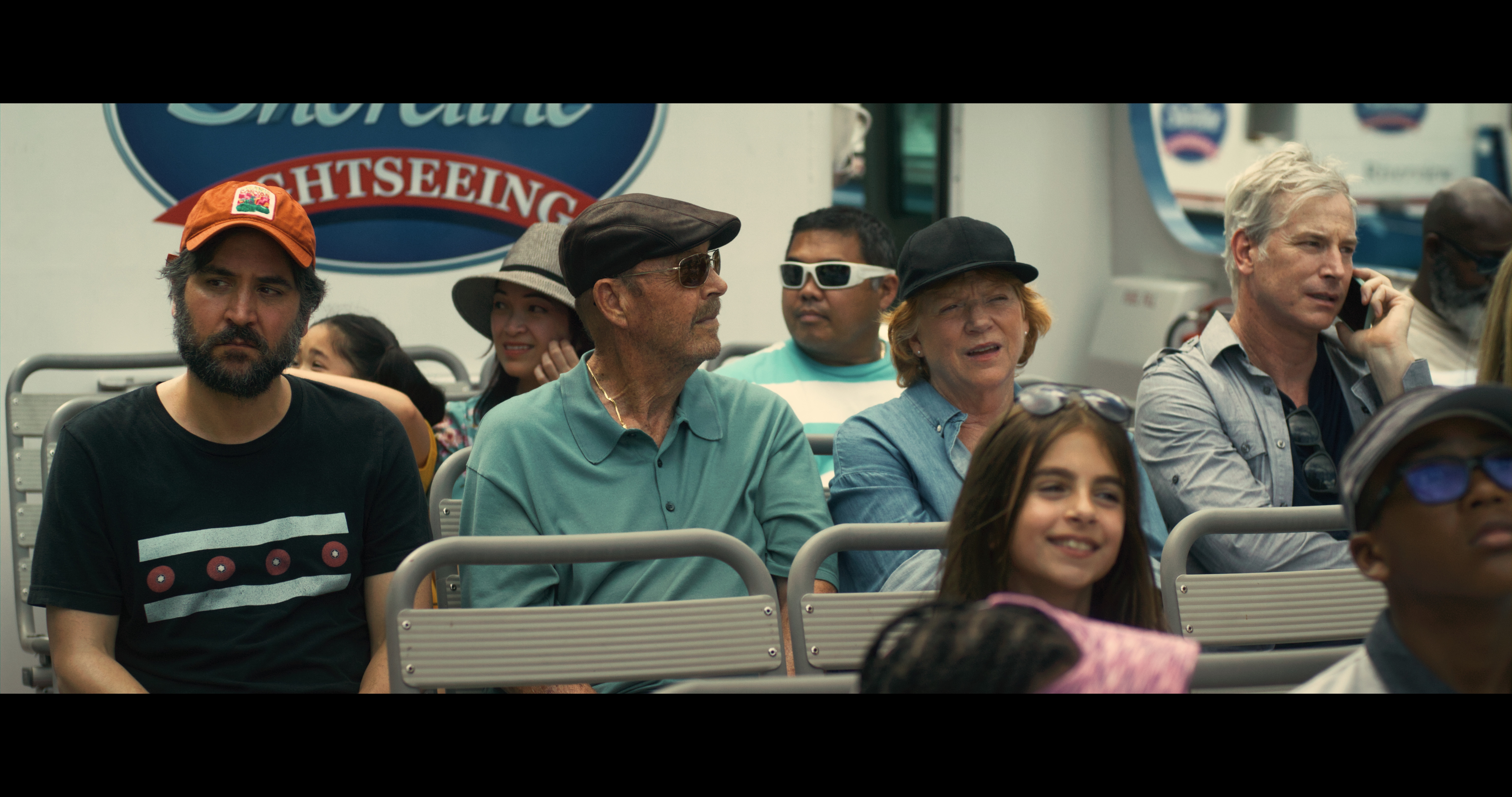 Josh Radnor, John Ashton, Becky Ann Baker, and Rob Huebel in “All Happy Families”
Josh Radnor, John Ashton, Becky Ann Baker, and Rob Huebel in “All Happy Families”
Becky Ann Baker’s portrayal of Sue Landry was met with universal acclaim even before the film’s release. Rose emphasized Baker’s exceptional talent and the immediate sense that the role was tailor-made for her. Her performance is described as flawlessly authentic and deeply resonant.
John Ashton, who previously worked with Rose on “Once Upon A River,” was a natural choice for Roy Landry. Their established rapport and Ashton’s inherent ability to embody the character made him the perfect fit without considering other actors.
The supporting cast, featuring Chicago-based talents like Chandra Russell, Antoine McKay, and David Pasquesi, added further depth to the film. Rose expressed immense gratitude for their contributions, noting that their participation was driven by their connection to the script and the project itself, rather than financial incentives, especially considering the lingering uncertainties of filming during the COVID era.
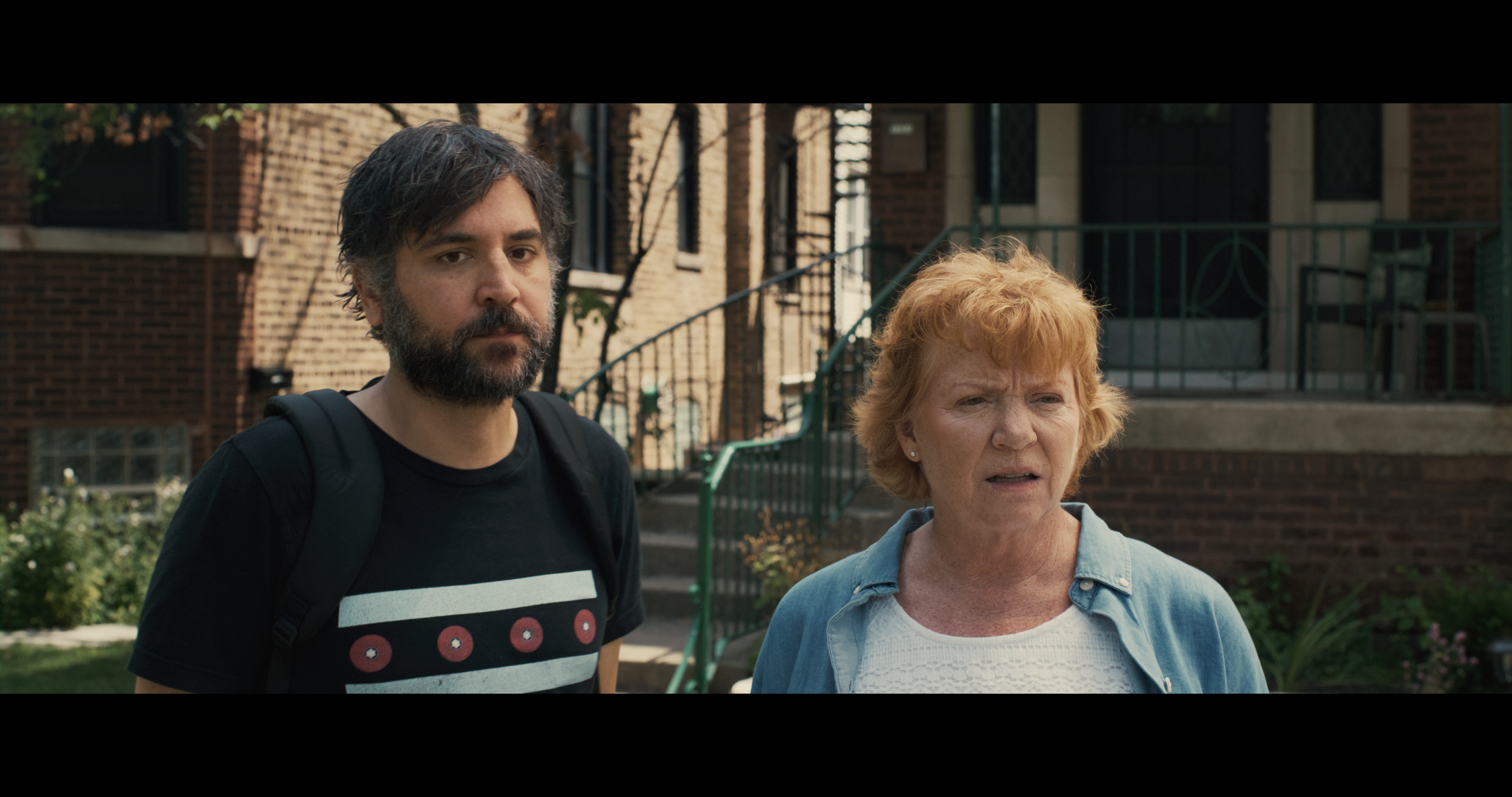 Josh Radnor and Becky Ann Baker in “All Happy Families”
Josh Radnor and Becky Ann Baker in “All Happy Families”
Chandra Russell: A Chicago Gem
The spotlight on Chandra Russell’s role as Dana highlights Rose’s commitment to showcasing local Chicago talent. Rose explained that Russell was always their top choice for Dana, particularly with Josh Radnor’s enthusiasm for working with her. Russell’s portrayal in South Side and her own personal qualities resonated with the filmmakers.
Rose described Russell’s Dana as embodying sensitivity and authenticity, coupled with a quiet strength. This created a compelling dynamic with Josh Radnor’s Graham, who is depicted as more tentative and less assertive. Dana’s directness and self-awareness, particularly her sobriety and clear boundaries, become a catalyst for Graham’s personal growth.
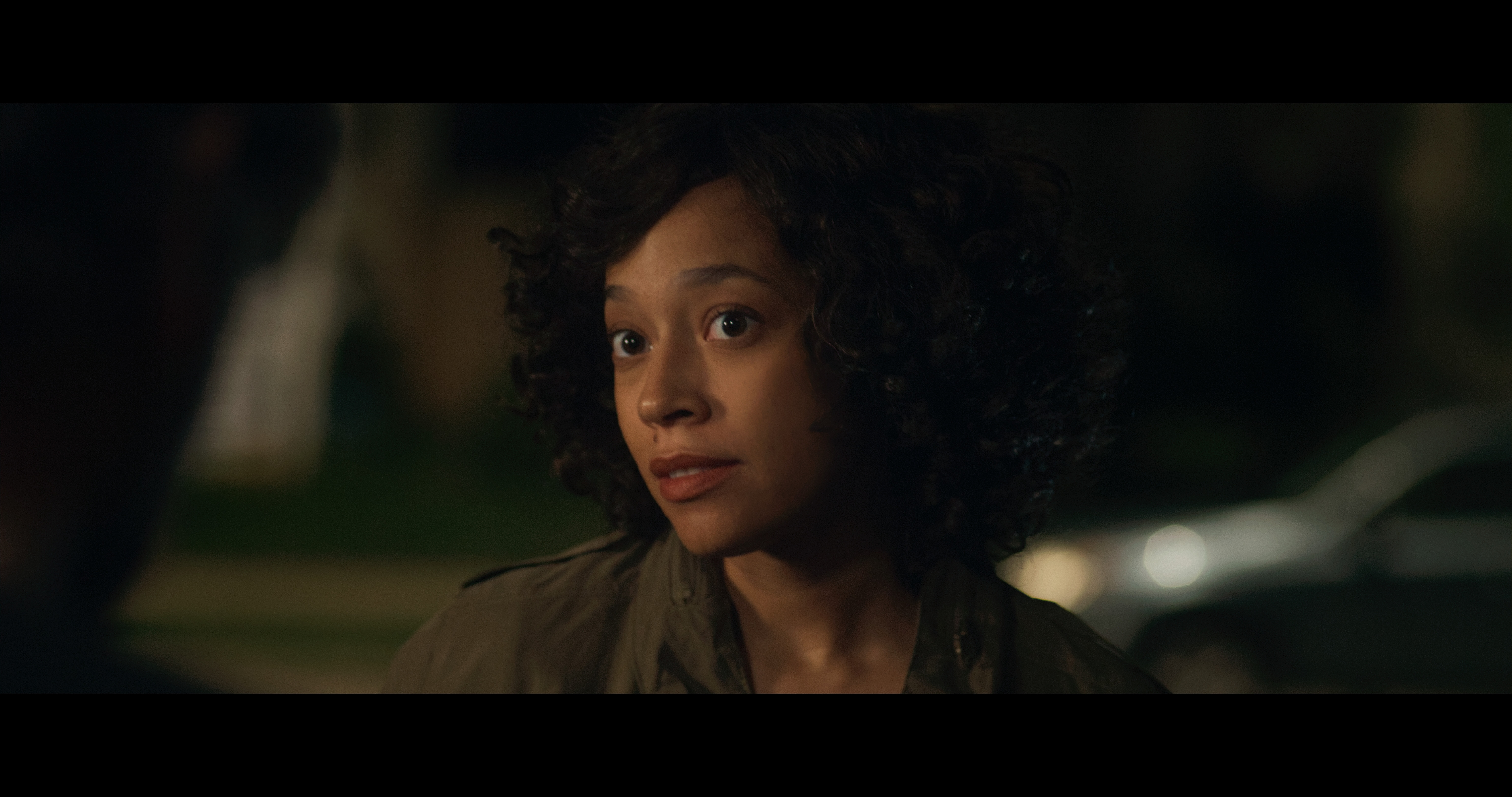 Chandra Russell in “All Happy Families”
Chandra Russell in “All Happy Families”
Navigating Contemporary Issues: Cancel Culture, #MeToo, and Shifting Paradigms
“All Happy Families” subtly yet powerfully addresses contemporary societal issues like cancel culture and the ongoing reckoning of the #MeToo movement. Rose articulated that exploring these themes was crucial, focusing on the nuanced and often ingrained misogyny present within families and social circles. The film deliberately avoids being didactic, instead opting to observe and present these dynamics authentically, allowing the audience to draw their own conclusions. This approach mirrors the nuanced storytelling of “Once Upon A River,” where moral judgments are implicit rather than explicit.
The film uses the contrasting characters of Will and Graham to explore these paradigms. Will embodies a charming yet questionable “alpha male,” while Graham represents a more sensitive and compassionate, albeit somewhat stagnant, figure. This dichotomy serves to illustrate the persistence of patriarchal structures and behaviors, prompting reflection rather than explicit judgment.
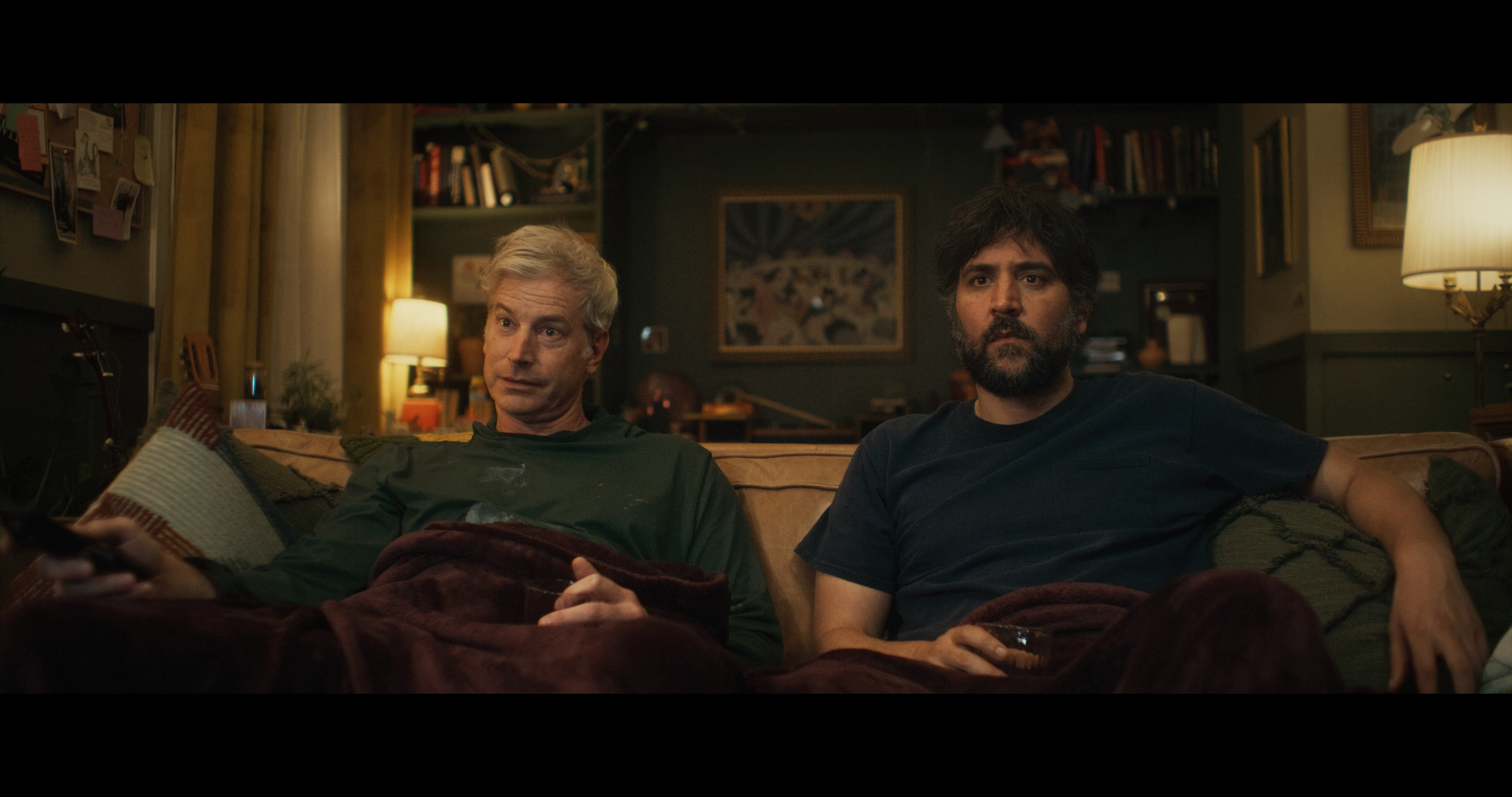 Rob Huebel and Josh Radnor in “All Happy Families”
Rob Huebel and Josh Radnor in “All Happy Families”
Evie’s Story: Expanding the Family Narrative
The inclusion of Evie’s storyline, a trans woman coming out to her family, adds another layer of complexity to the family dynamics in “All Happy Families.” Rose explained that this narrative thread was intentionally woven in to further reveal the characters’ personalities through their reactions and growth. It serves as a microcosm of contemporary human experience, highlighting varying degrees of acceptance and understanding within the family. Will, despite his flaws, is portrayed as a loving father, while Roy represents a more traditional and less accepting viewpoint. Sue and Graham embody the effort to bridge generational gaps in understanding gender identity, acknowledging the limitations of individual influence in changing deeply held beliefs. Ivy O’Brien’s performance as Evie is praised as perfectly capturing the nuances of the character.
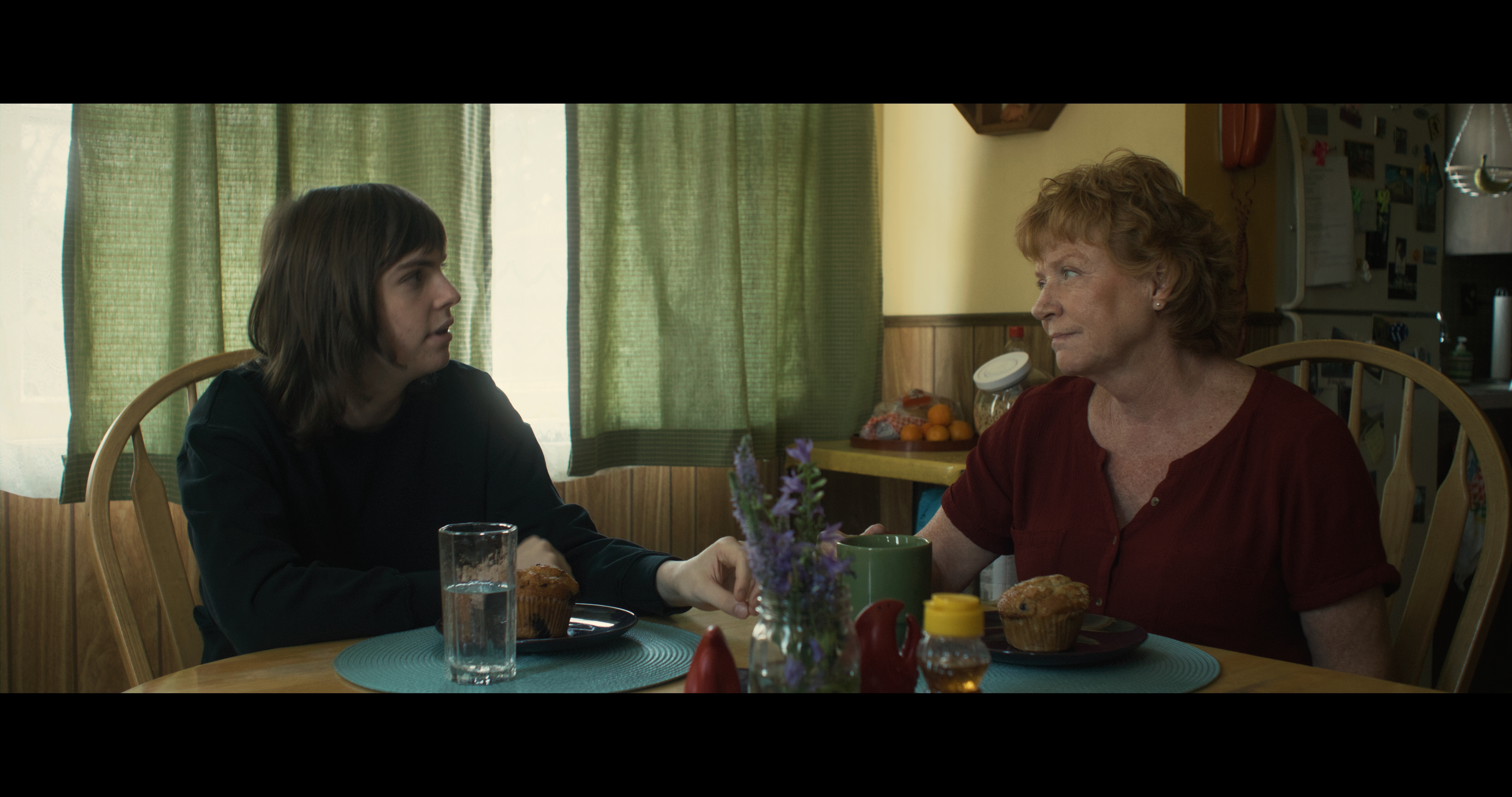 Ivy O’Brien and Becky Ann Baker in “All Happy Families”
Ivy O’Brien and Becky Ann Baker in “All Happy Families”
Chicago as a Character: Location and Community
The film’s Chicago setting is not merely a backdrop but an integral part of the narrative. Rose, a Chicago native, emphasized the deliberate choice to ground the story in her hometown. Finding the quintessential “two-flat building” to serve as the Landry family home was a key element in establishing the film’s Chicago identity. The production team effectively “owned” a building and a block, immersing themselves in the chosen neighborhood.
B-roll footage, expertly captured by Amy Limpinyakul, showcases various facets of Chicago life, from iconic landmarks to everyday neighborhood scenes. Rose provided a list of “ideal Chicago scenes,” and Limpinyakul, also a North Side native, captured the city’s diverse neighborhoods and atmospheres. Location scouting prioritized familiar and authentic Chicago locales, ranging from upscale restaurants to cozy neighborhood pubs, creating a rich tapestry of the city.
Music and Atmosphere: The Hidden Cove Scene
The film’s music, particularly the scene featuring Becky Ann Baker singing in a bar, adds another layer of emotional depth. Rose revealed that this scene was filmed at The Hidden Cove on Lincoln Avenue, a real Chicago venue. The shoot, featuring country artist Rodney Crowell, was described as a joyous and memorable experience.
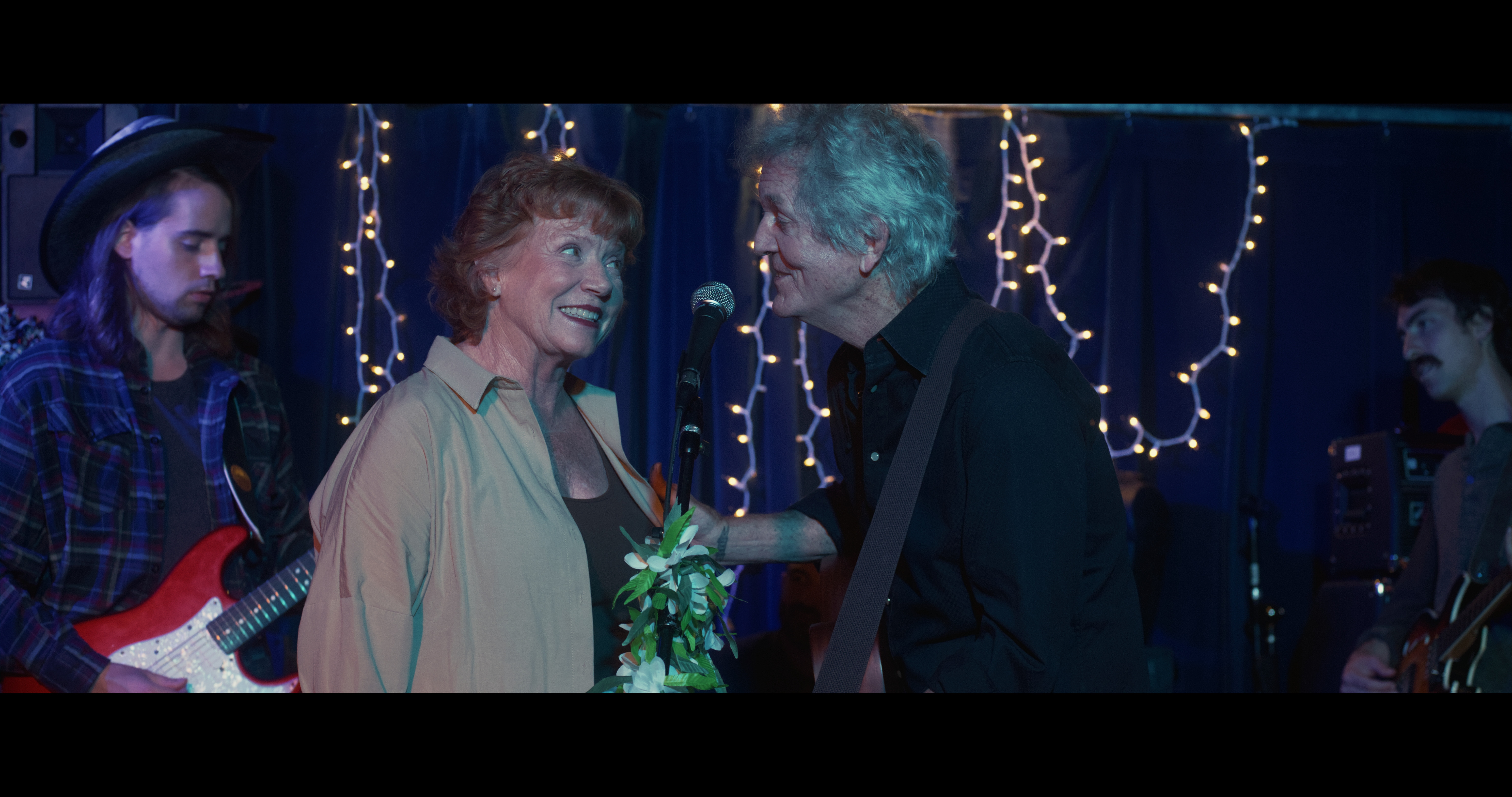 Becky Ann Baker and Rodney Crowell in “All Happy Families”
Becky Ann Baker and Rodney Crowell in “All Happy Families”
Women Behind the Camera: A Welcoming Set
Rose highlighted the significant presence of women in key behind-the-scenes roles, including cinematographer Johanna Coelho. Their collaboration began with a music video for Israel Nash, where Rose was impressed by Coelho’s resourcefulness and talent. They reunited for a short film, “Hound of Love,” for Reese Witherspoon’s Hello Sunshine, further solidifying their creative partnership. Rose praised Coelho’s ability to work effectively with actors and her intuitive understanding of visual storytelling.
For “All Happy Families,” Rose intentionally assembled a leadership team predominantly composed of women, from editors to music supervisors and producers like Liz Cardenas. This created a distinct on-set atmosphere that actors noted as warmer, more comfortable, and more open compared to sets with predominantly male crews. Rose believes this inclusive environment fostered a positive experience for both cast and crew.
The film subtly reflects this female-centric energy through the portrayal of Sue and her supportive group of female friends. Rose expressed a desire to explore these characters further, even envisioning a spin-off series focused on their “badass-ness” and camaraderie, highlighting the underrepresented stories of older women.
Director’s Hope: Relatability and Conversation
Rose articulated her aspirations for “All Happy Families,” hoping that audiences would see reflections of themselves and their own families in the characters and situations depicted. Her aim was to create a film that felt truthful and grounded, sparking meaningful conversations among viewers.
She also pointed out the film’s subtle “female gaze” on the male perspective, particularly in how the male characters discuss and interact with women, and in the events surrounding Sue’s storyline. This directorial choice, Rose emphasized, was intentional and empowering, offering a unique viewpoint on familiar dynamics.
 Coburn Goss, Michael Shannon, and Haroula Rose at the CIFF premiere of “All Happy Families”
Coburn Goss, Michael Shannon, and Haroula Rose at the CIFF premiere of “All Happy Families”
A Collaborative Effort: The Producing Team
The success of “All Happy Families” is attributed to a dedicated producing team, including Rhianon Jones (Neon Heart Productions), Liz Cardenas, and executive producer Michael Shannon. Shannon’s early support, stemming from his friendship with Coburn Goss, was instrumental in attracting further talent and resources to the project.
Rose acknowledged the crucial contributions of Chicago Media Angels (CMA) and the on-the-ground producers Liz Cardenas, Ian Keiser, and Coburn Goss. Executive producers Sue Berghoef and Marshall Cordell, who connected with the story’s relatable family dynamics, also provided vital support. Rose emphasized the collective effort required to bring an independent film to life, expressing deep gratitude to all involved.
Her hope is that “All Happy Families” will find a distributor who recognizes its broad appeal and potential to reach a wide audience, envisioning it as a film that resonates with viewers seeking both artistic depth and relatable entertainment on platforms like Netflix or Amazon. Rose believes the film’s universal themes and engaging characters make it a compelling watch for diverse audiences, potentially even families watching together.

